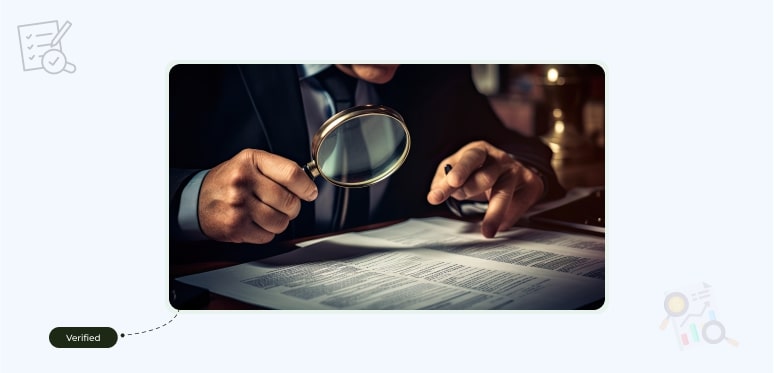Verifying the Legitimacy of an LLC Before Engagement
In today’s complex and rapidly evolving business environment, the importance of thoroughly verifying the legitimacy of a Limited Liability Company (LLC) before entering into any form of business relationship cannot be overstated. Engaging with an LLC that has questionable credentials or doubtful legal standing can lead to significant financial losses, legal complications, and reputational damage. Therefore, a methodical approach toward confirmation and validation of an LLC’s authenticity is essential for every prudent business owner or stakeholder.
This article explores comprehensive strategies to ensure you are dealing with a legitimate LLC. We will guide you through the essential steps and resources, such as state databases, official certificates, licensing authorities, and trusted rating organizations, to confidently make informed decisions. Additionally, we highlight the subtle warning signs that might signal fraudulent activity or misrepresentation in LLC structures. Our goal is to empower your business with knowledge and caution to protect its interests and financial wellbeing.
Understanding What Constitutes a Legitimate LLC
A Limited Liability Company is a popular business structure combining the pass-through taxation advantage of a partnership with the limited liability protection of a corporation. Legitimate LLCs file the necessary documents with the relevant state authorities, maintain up-to-date registrations, and comply with ongoing legal and financial responsibilities dictated by law. The legitimacy of an LLC hinges on its adherence to these formalities and its transparency in disclosing ownership and operational information.
Conversely, illegitimate or fraudulent LLCs might omit crucial filings, lack proper registration, or conceal their ownership, making verification paramount. Such entities could be shell companies, fronts for illegal activities, or simply businesses failing to comply with regulatory requirements, posing high risk for anyone associating with them.
Step 1: Utilize the Secretary of State’s Database for Verification
The cornerstone for validating an LLC’s legitimacy is consulting the Secretary of State (SoS) database of the state where the LLC claims to be registered. Each U.S. state maintains an online business entity search system accessible to the public, offering detailed data including registration status, formation date, registered agent, and standing.
Accessing this database allows you to:
- Confirm that the LLC is officially registered and recognized by the state.
- Verify the date of formation to understand the company’s experience and longevity.
- Check the registered agent responsible for receiving legal documents.
- Determine the current status of the LLC, such as active, dissolved, revoked, or suspended.
Searching these records requires only the company’s official name or its registration number. For example, databases like the California Secretary of State Business Search or the Delaware Division of Corporations are invaluable resources for these verifications.
Step 2: Request a Certificate of Good Standing
After confirming the LLC exists within the state’s database, the next prudent step is to obtain a Certificate of Good Standing (also known as a Certificate of Existence or Status). This certificate is an official document issued by the state authority attesting that the LLC complies with all state requirements, including timely filing of reports and payment of taxes, fees, and penalties.
The Certificate of Good Standing serves several purposes:
- Demonstrates the LLC’s compliance with legal obligations and good reputation.
- Provides evidence of the company’s ability to legally conduct business within the state.
- Is often required when opening bank accounts, applying for loans, or entering contracts.
- Helps identify any recent administrative issues or penalties that could affect credibility.
Requesting this certificate can usually be done online via the respective Secretary of State’s website, or by contacting their office directly. Note that a nominal fee is typically associated with the issuance.
Step 3: Verify Licenses Relevant to the LLC’s Industry
Many LLCs operate in regulated industries requiring specific licenses or permits to legally conduct business. For example, healthcare providers, contractors, financial service entities, and food service companies must hold valid licenses from relevant governing bodies.
Verifying these licenses is a critical part of due diligence because:
- It ensures the company complies with industry-specific regulations.
- Reflects the company’s commitment to ethical and professional standards.
- Protects you from partnering with unqualified or unauthorized businesses.
Licensing information can typically be verified through state licensing boards or professional association databases relevant to the industry in question.
Step 4: Check Better Business Bureau Ratings and Customer Reviews
Beyond statutory verifications, assessing an LLC’s reputation in the business community is equally important. The Better Business Bureau (BBB) offers consumer ratings, complaint histories, and reviews that provide valuable insight into how the business conducts itself.
Key reasons to use BBB and review platforms include:
- Identify any patterns of customer complaints or unresolved disputes.
- Gauge overall customer satisfaction and service quality.
- Spot potential warning signs such as fraudulent practices or poor business ethics.
While BBB is a widely recognized authoritative organization, also consider other customer review sites and professional networks for a broader perspective.
Step 5: Be Alert to Red Flags of Fraudulent LLCs
Even when documentation appears in order, vigilant scrutiny is necessary to detect possible fraud. Red flags indicating that an LLC might not be legitimate include:
- Missing or inconsistent filings in the Secretary of State’s database.
- Discrepancies between the reported ownership and the actual management structure.
- Use of a P.O. Box instead of a physical address or untraceable contact details.
- Absence of a valid Certificate of Good Standing or refusal to provide one.
- Negative BBB ratings or numerous unresolved customer complaints.
- Unlicensed operation in an industry that mandates professional certification.
Recognizing these signs promptly can prevent entanglement in fraudulent schemes or unreliable business associations.
How This Verification Protects Your Business and Finances
Conducting thorough due diligence before doing business with an LLC safeguards your company’s financial resources, reputation, and operational stability. Here is how these checks provide protection:
- Mitigates the risk of financial loss due to fraudulent contracts or unreliable partners.
- Prevents legal disputes resulting from associations with unregistered or non-compliant entities.
- Enhances trustworthiness in business relationships, instilling confidence in stakeholders.
- Ensures compliance with regulatory frameworks, avoiding penalties or sanctions.
Such proactive measures contribute to a secure and prosperous business environment by establishing firm foundations of transparency and accountability.
When to Seek Professional Legal Assistance
While these steps provide a robust framework for verifying LLC legitimacy, complex scenarios may require expert legal interpretation. If discrepancies arise, or if you face uncertainty interpreting registration documents or contracts, consulting a qualified attorney becomes imperative.
Legal professionals can offer:
- Detailed analysis of business registration and compliance status.
- Representation in negotiations or disputes involving LLC partners.
- Drafting and reviewing contracts to safeguard your interests.
- Guidance on risk mitigation strategies tailored to your business context.
For authoritative advice, please contact us through the communications provided in our bio or send a private message to initiate a confidential consultation. Our team at Legal Marketplace CONSULTANT is committed to protecting your business with expert legal support in every transaction.
Verifying the legitimacy of an LLC before commencing business engagements is a critical step that can shield your company from financial and legal risks. By diligently utilizing state databases, obtaining Certificates of Good Standing, confirming necessary licenses, and reviewing reputed rating platforms, you can establish confidence in your business relationships. Recognizing early warning signs of fraud and knowing when to seek legal counsel further solidify your protective measures.
At Legal Marketplace CONSULTANT, we emphasize cautious due diligence as the foundation for successful and secure business operations. Should you require tailored assistance or professional legal services in verifying an LLC or structuring your business dealings, do not hesitate to reach out via the contacts in our bio or by sending a direct message. Protect your investment, your business, and your future by prioritizing legitimacy and transparency in every transaction.
Legal Marketplace CONSULTANT is a law firm specializing in comprehensive legal services for businesses and individuals, with a focus on verification, compliance, and business law consulting.
Contact us anytime through the communications listed in our bio or send a private message for confidential assistance.































